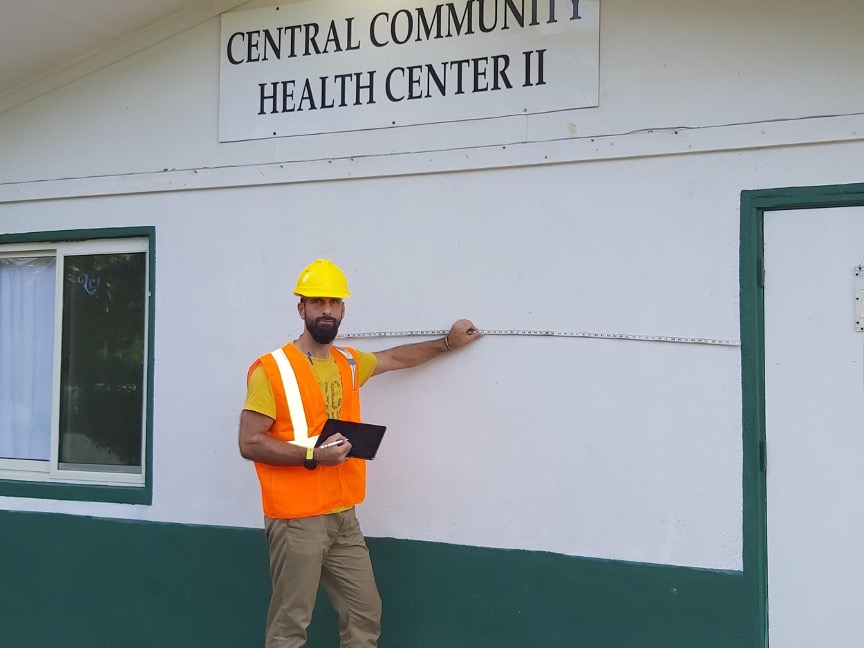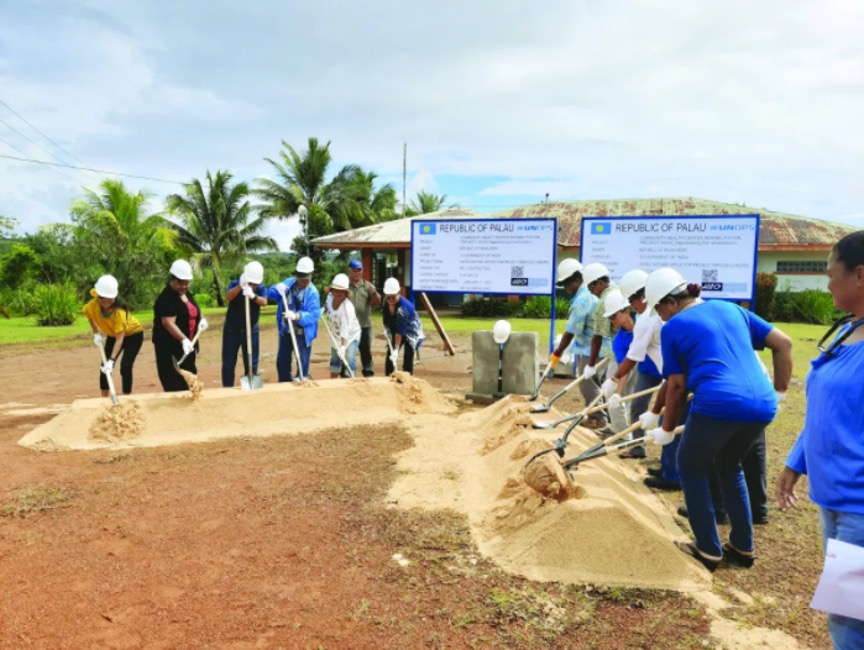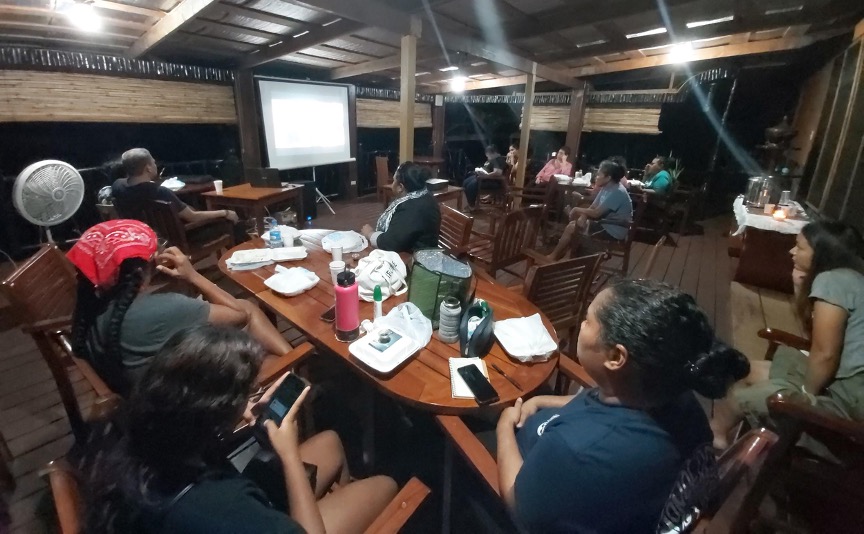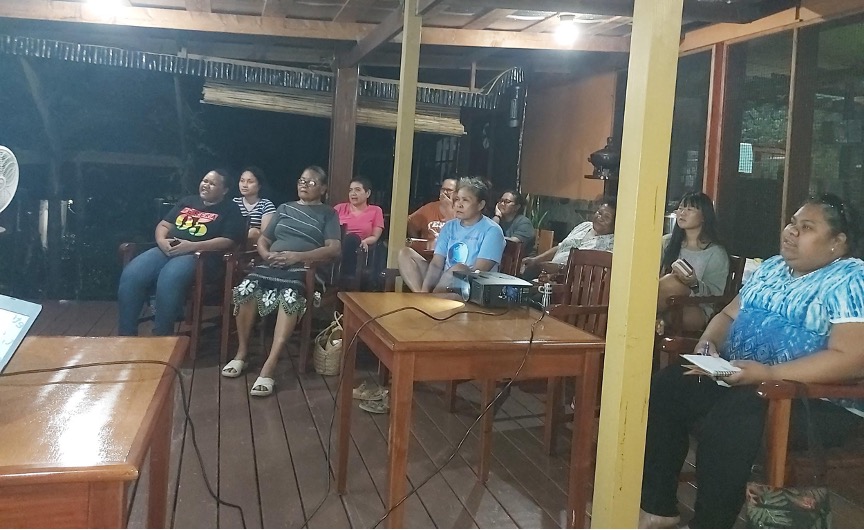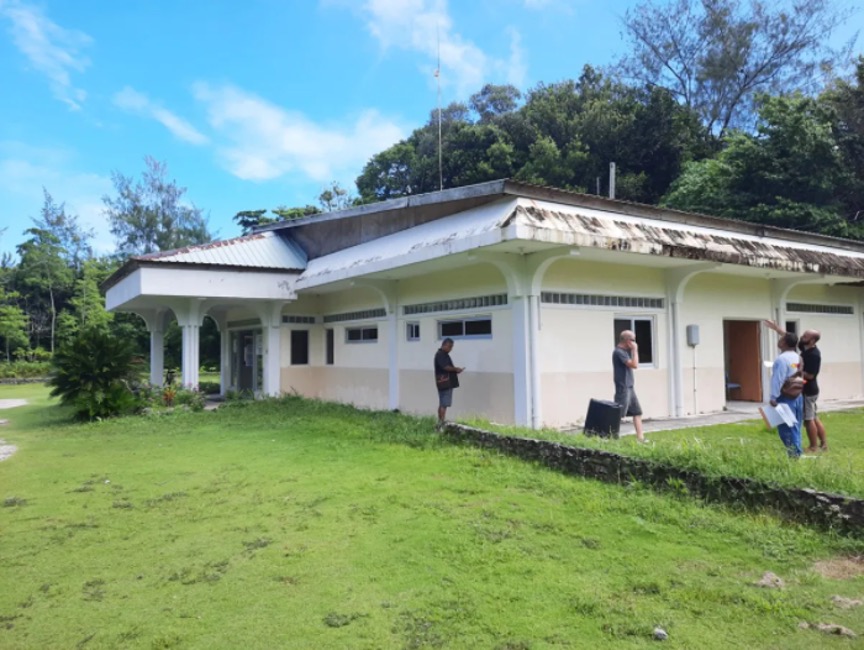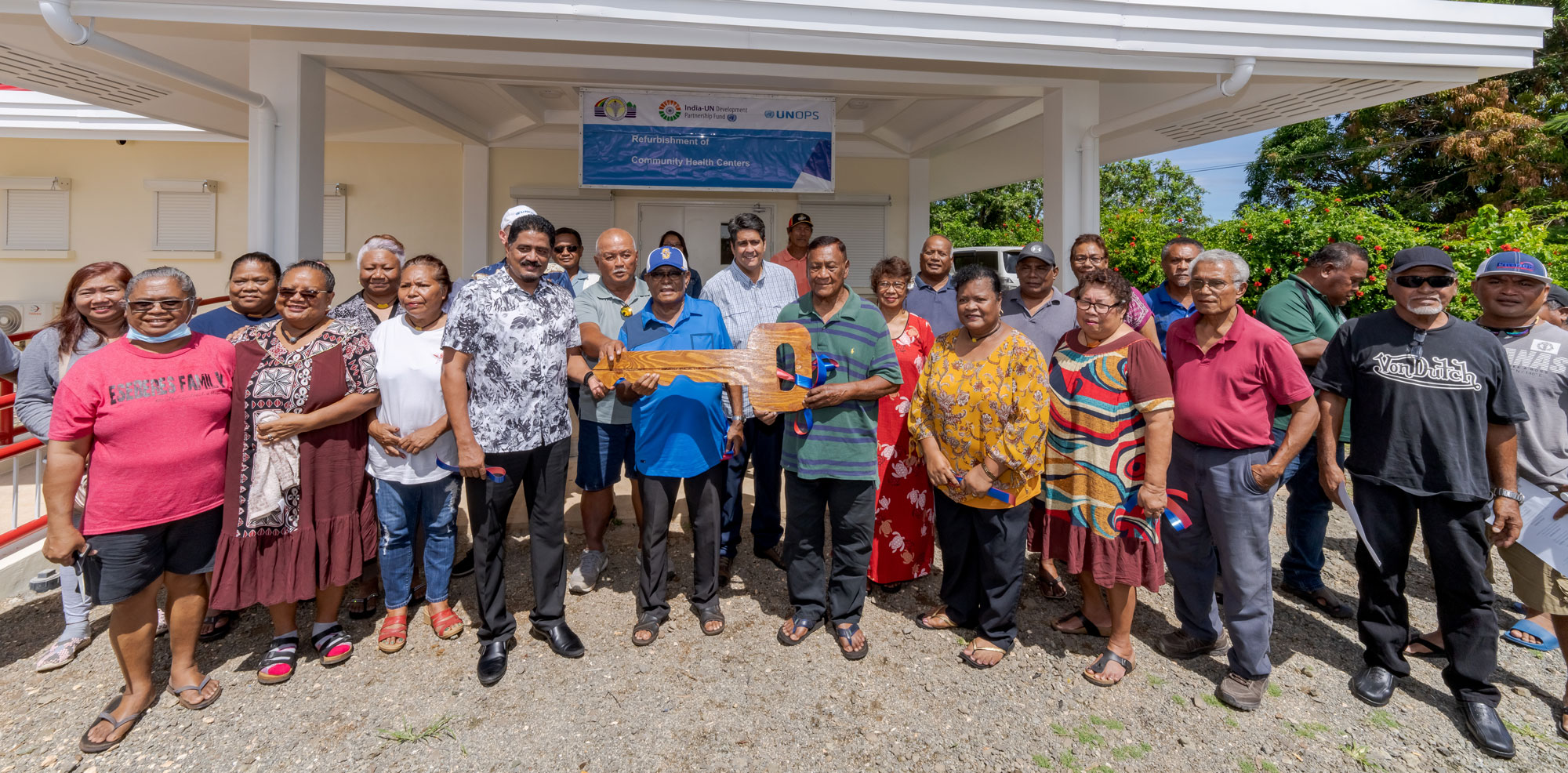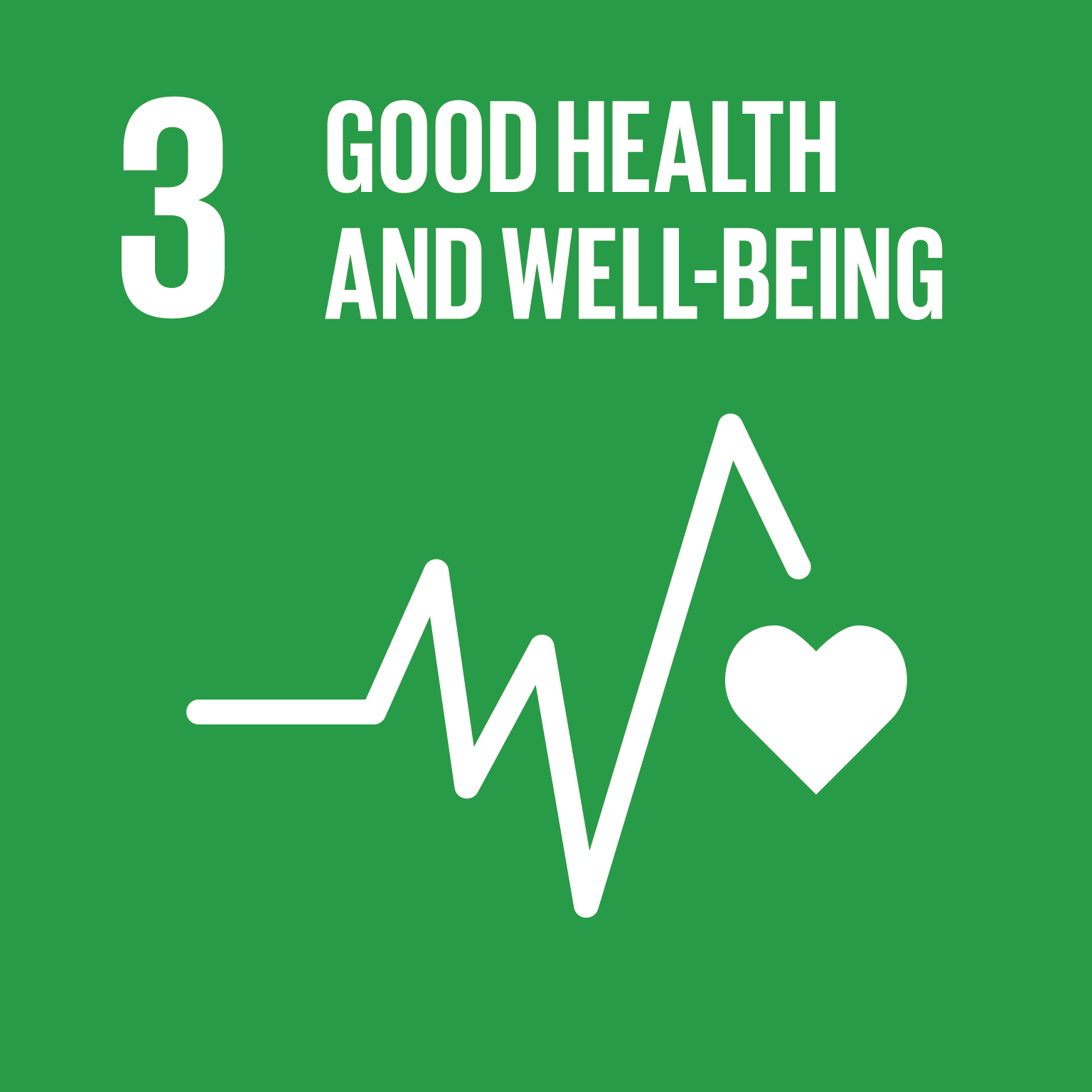 Palau Community Health Center Rehabilitation Project
Providing local populations with access to high quality essential health care services
Palau Community Health Center Rehabilitation Project
Providing local populations with access to high quality essential health care services
Challenges
Like most developing nations, Palau is facing public health challenges, such as an ongoing battle with non-communicable diseases. According to the World Health Organization, over 70 percent of deaths in Palau are caused by non-communicable diseases, with heart disease, obesity, stroke, cancer and diabetes being the main causes. Non-communicable diseases have lowered Palauan life expectancy and continue to be drivers of poverty and inequality undermining socio-economic progress.
In line with the Sustainable Development Goal 3 (Good Health and Wellbeing), and to improve the physical state of Palau’s underserved communities and vulnerable populations, the Palau Ministry of Health conducted an overall assessment of the sector. The findings revealed that to bring well-being closer to people, the country’s Community Health Centres, as the primary means of health service delivery, need to be radically improved.
Towards a Solution
To respond to the national needs, the government of Palau is working with UNOPS, the UN’s infrastructure specialist, in a US $1.6 million collaboration project to help improve some of the nation’s most vital health infrastructure. Funded by the India-UN Development Partnership Fund which is managed by the United Nations Office for South-South Cooperation (UNOSSC), UNOPS is assisting Palau’s Ministry of Health to rehabilitate three community health centres in Ngarchelong, Ngeremlengui, and Peleliu. The aim of the project is to upgrade local healthcare facilities and to provide local populations with access to high-quality essential health care services. Simultaneously, healthcare workers are expected to benefit from improved working conditions.
To effectively renovate the community health centres and to achieve maximum safety on the construction sites, it was necessary to first build local capacity in important aspects of construction, namely quality assurance and health and safety in the working environment. Thus, UNOPS trained local maintenance teams and contractors on Quality Assurance and Health, Safety and Environment.
Project personnel received online training on Health, Safety and Environment from the Institution of Occupational Safety and Health. An E-learning methodology was used, and guidance to the local maintenance teams and CIP instructors was provided by the project manager with the use ‘Working Safely’ course. In addition, the project manager trained the team on quality assurance, health and safety and construction site management with a total of 9 lectures of 1.5-hour duration each. The training used the combination of strong educational supervision and a participative leadership style, highlighting the mutual benefits for the project and for the individual.
To monitor the infrastructure projects and to support the UNOPS ‘GOAL ZERO’ for safety on construction sites, the ‘OneUNOPS Collect (oUC)’ tool was used. The tool enabled the project to collect data on-site, using a mobile device - making it easier for project personnel to carry out data collection tasks. Collected data was then available for use from a central repository, and could be visualised alongside other corporate and non-corporate data, using Google Data Studio or Google Connected Sheets-based reports to facilitate informed decision making. This helped to increase project quality, assure health and safety supervision on project sites and support capacity building.
To increase awareness of personal health and to inspire positive lifestyle changes, UNOPS collaborated with vegetarian restaurant owners, health practitioners and lifestyle facilitators to organize a series of lectures for the local communities. “Be your own best medicine!” lectures, attended primarily by female citizens, focused on whole-person health, integrating concepts around optimal nutrition, exercise and behavioural psychology. The lectures also touched on gender-responsive infrastructure designs, that aim to address gender inequalities by responding to diverse needs in society – including women, men, girls and boys, the elderly, the physically disabled and economically disadvantaged, and can thus enhance sustainability, equality, and economic and social benefits for all.
The innovation aspect of the project consisted in the use of modern technology, developed specifically for infrastructure projects to ensure easier monitoring and quality supervision. Adding to the use of technology, UNOPS invested significant effort in building the skills of the local communities and key project personnel. The skills learned by project personnel and local communities can be applied to future infrastructure projects in the country while increasing the employability of the trainees.
UNOPS is working in close collaboration with the Ministry of Health in Palau and local communities to ensure local ownership. Once the assets are constructed and handed over to the Government of Palau, UNOPS will support the formulation of maintenance plans to ensure long-term sustainability and continuity of services.
Contact Information
Countries involved
Supported by
Implementing Entities
Project Status
Project Period
Primary SDG
Primary SDG Targets
Secondary SDGs
Secondary SDG Targets
Similar Solutions
| NAME OF SOLUTION | Countries | SDG | Project Status | |
|---|---|---|---|---|
Accelerating the Implementation of African Union Treaties in São Tomé and Príncipe South-South learning from the Beninese judicial system’s experience in the application of human rights treaties to its national law |
India, Palau | 05 - Gender Equality | Completed | View Details |
Accelerating the Transformational Shift to a Low-Carbon Economy in Mauritius Towards supplying 35 percent of the country’s energy needs with renewables by 2025 |
India, Palau | 05 - Gender Equality 09 - Industry, Innovation and Infrastructure 13 - Climate Action | Ongoing | View Details |
Access to Justice through e-Services and Dematerialized Case Management Scaling up connectivity and unlocking the digital potential of judicial institutions to enhance access to justice for all |
India, Palau | 05 - Gender Equality | Completed | View Details |
Action Plan on Gender Equality and the Empowerment of Women at the National Level in the Arab Region Mainstreaming gender action within national institutions in the Arab region |
India, Palau | 05 - Gender Equality | Completed | View Details |
Adaptation for Smallholder Agriculture Programme Establishing better working conditions for smallholder farmers through the use of good practices and new technologies |
India, Palau | 08 - Decent Work and Economic Growth 11 - Sustainable Cities and Communities 13 - Climate Action 15 - Life on Land | Ongoing | View Details |
